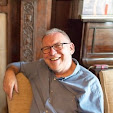Now I'm retired from academia my feelings about ResearchGate are more mixed. On the one hand, it's flattering to think that academics and students from every corner of the globe still want to read my work. On the other hand, sometimes I wonder why I should go on spending my time corresponding with strangers asking for free copies of my work, perhaps having made little effort to search for it in their university library. If you think it's strange for an author to give away his books for free, so do I, but this apparently is the nature of academic publishing and knowledge-sharing in the 21st century. Academics (and presumably even retired academics like me) are expected to share freely and generously. Imagine novelists sending out free eBooks versions of their novels. 'Content marketing' (as it's known) is one thing, but this is ridiculous. Sometimes I think I should close my account with ResearchGate but, for now, I studiously continue to reply to enquiries, usually sending the enquirer what they're asking for, with a slightly cheeky cover note to the effect:
"First of all, apologies if I’ve taken a long time to respond. I’m now retired from lecturing and academia and so I look at ResearchGate much less frequently. I’m now a full-time writer and musician. Thank you for your interest in my work. I’m sending you (the book/chapter/paper) you requested for your private use. I hope you find it helpful and interesting. If so, please recommend it to your librarian. Wishing you all the best with your research/future career."
Of course, if a librarian somewhere were to buy a copy of my book (or subscribe to the eBook) I wouldn't gain personally, but it would mean there are more copies in existence.
Sometimes, the researcher sends a brief reply via ResearchGate to thank me. But recently I received a message of thanks which almost makes my strange retirement job of giving away free copies of my book worthwhile. A researcher from Indonesia (whose field is Linguistic Typology, Sociolinguistics and Discourse Analysis,) wrote to say this:
"Please accept my heartfelt appreciation... The magnanimity you have displayed in granting me access to your work is truly commendable, especially in the light of your decision to step away from academia. May your days be filled with happiness and contentment.
Your research is highly relevant to my studies, particularly in the context of how creative writing helps mental health recovery. I am confident that your paper will greatly contribute to my understanding of the subject matter and inspire further exploration of my research endeavours.
Thank you once again for your kindness in sharing your expertise with me. Your contributions will undoubtedly enrich my research endeavours, and I am genuinely grateful for the opportunity to engage with your work."












